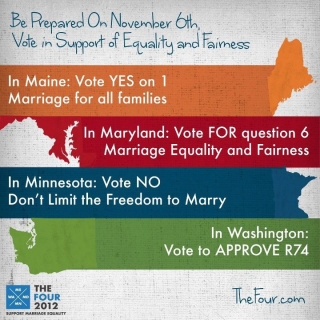In an exclusive interview with Blue Boat, Zach Wahls discusses marriage-equality ballot victories in Maine, Maryland, Minnesota and Washington. This first post in a series from our interview with Zach examines how the conversation on marriage equality has changed and the turning point the fight for this civil right has reached.– Ed.
Zach Wahls, a UU young adult who became prominent on the issue of marriage equality when
he testified before the Iowa House Judiciary Committee against an amendment banning same-sex marriage says the vote on Tuesday November 6 taught us that marriage equality is foremost, “a conversation about love and commitment.” Ballot initiatives on marriage equality have been defeated 32 times since the mid-1990’s with no electoral victories, but on this Tuesday all four ballot initiatives passed, bringing the scorecard to 4 and 32. “What’s changed over the past ten years is now we’re talking about love and we’re talking about families,” Wahls says. Adding, “(In the past) we were talking about rights – and that’s very important, but it’s an abstract concept. But when you have a conversation about family it helps people understand that there is nothing to be scared of when it comes to marriage equality.”
The four ballot wins against no losses represents a turning point in the fight for marriage equality. This issue is likely to be decided by the United States Supreme Court, which takes public opinion and ballot results into account so as to make enforceable decisions. In the past year President Obama and the
NAACP declared their support for marriage equality, and the idea of same-sex marriage has become much more mainstream. Wahls observes, “If you can win (on marriage equality) in Minnesota you can win almost anywhere in America.”
Wahls believes we are further along in this fight than many realize, pointing out that in addition to winning each of the ballot issues on November 6, Justice David Wiggins who sat on the Iowa State Supreme Court when it legalized same-sex marriage was
the first justice to survive a punitive retention vote, signalling that attitudes have genuinely changed in Iowa. (In 2010 three members of the Court who voted to legalize same-sex marriage were removed.) Wahls says the significance of this victory for marriage equality isn’t just Iowa local – it’s national and won’t be lost on candidates for the US Presidency in 2016, noting that the Iowa Caucus “first in the nation” status means that Republican candidates will have to adopt a moderate position on social issues to capture support.
The big message Tuesday’s broad victory for marriage equality sends, Wahls says is, “There’s no going back. We’ve come so far that today the only course left is to move forward.”
